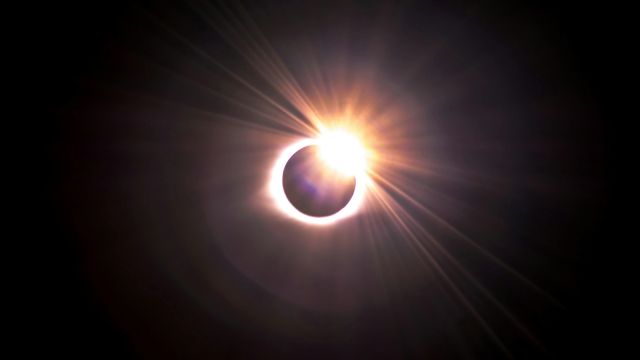In a landmark decision, inmates at a New York prison have won the right to witness the upcoming total solar eclipse, settling a lawsuit against the state corrections department.
The legal action, initiated on Friday in a federal court in upstate New York, challenged a planned lockdown during the eclipse that would have barred many inmates statewide from experiencing the event.
The plaintiffs argued that such a restriction infringed upon their religious freedoms, given the profound spiritual significance the eclipse holds for individuals of various faiths.
The lawsuit brought together six inmates from diverse religious backgrounds—including a Baptist, a Muslim, a Seventh-Day Adventist, two practitioners of Santeria, and an atheist—united by their belief in the importance of observing the solar phenomenon.
Corrections officials, responding to the lawsuit, agreed to allow these plaintiffs to view Monday’s eclipse, leading to the withdrawal of the legal challenge, as confirmed by department spokesman Thomas Mailey to USA TODAY.
Christopher L. McArdle, representing the inmates, expressed satisfaction with the outcome, highlighting the agreement as a victory for religious freedom. “New York State has entered into a binding settlement agreement that will enable our clients to observe the solar eclipse in accordance with their sincerely held religious beliefs,” McArdle stated, underscoring the significance of the resolution.
New York, directly in the eclipse’s path of totality for the first time since 1925, has been buzzing with anticipation for this astronomical event. The eclipse, a rare occasion where the moon entirely obscures the sun, revealing its outermost corona, has attracted widespread interest and is expected to draw large crowds of enthusiasts.
In light of this, corrections officials had initially planned to implement lockdowns and visitation restrictions at several facilities, citing security concerns.
This decision was contested by the inmates of Woodbourne Correctional Facility, who filed the lawsuit deeming the lockdown unconstitutional. They argued that the eclipse bore deep religious and philosophical significance, with historical ties to their faiths and beliefs.
For Christians, the darkness at Jesus’ crucifixion is likened to an eclipse; for Muslims, it is associated with the death of the Prophet Muhammad’s son. Santeria followers recognize eclipses as times for chanting rituals, and even atheists view such celestial events as opportunities to marvel at the universe’s wonders.
The lawsuit emphasized the universal desire to connect with phenomena greater than oneself, framing the opportunity to witness the eclipse as a fundamental human experience.
The settlement, allowing the inmates to partake in this momentous occasion, reflects a recognition of the importance of upholding the rights to religious freedom and personal enrichment, even within the confines of the correctional system.

